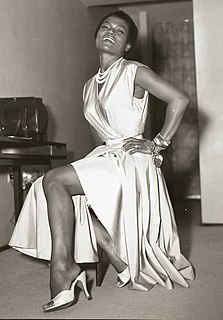A Quote by Georg Baselitz
I am not a representative of anything. When art historians or critics or the public put somebody in a drawer like this, it has a tranquilizing, paralyzing effect. Artists are individuals. They have ideas, and the conventions for one's self as an individual are not for a group. There are always those who follow the group, but they belong in the margins. I refuse to be placed within, or added to, one particular school.
Related Quotes
Also in contemporary Western society the union with the group is the prevalent way of overcoming separateness. It is a union which the individual self disappears to a large extent, and where the aim is to belong to the heard. If I am like everybody else, if I have no feeling or thoughts which make me different, if I conform in custom, dress, ideas, to the pattern of the group, I am saved: saved from the frightening experience of aloneness.
The public needs art, and it is the responsibility of a ’self-proclaimed artist’ to realize the public needs art, and not to make bourgeois art for the few and ignore the masses. … I am interested in making art to be experienced and explored by as many individuals as possible with as many different individual ideas about the given piece with no final meaning attached. The viewer creates the reality, the meaning, the conception of the piece. I am merely a middleman trying to bring ideas together.
Any group or "collective," large or small, is only a number of individuals. A group can have no rights other than the rights of its individual members. In a free society, the "rights" of any group are derived from the rights of its members through their voluntary individual choice and contractual agreement, and are merely the application of these individual rights to a specific undertaking... A group, as such, has no rights.
All rights are individual. We do not get our rights because we belong to a group. Whether it's homosexuals, women, minorities, it leads us astray. You don't get your rights belonging to your group. A group can't force themselves on anybody else. So there should be no affirmative action for any group.
The individuals inside are frequently fighting that their individual voices be heard, while the walls of the place, which are the mask, and the perception, are reluctant to give over to the voices of the individuals. Those in the margins are always trying to get to the center, and those at the center, frequently in the name of tradition, are trying to keep the margins at a distance. Part of the identity of a place is the tension between those in the margins, and those in the center, and they all live behind the walls which wear the tradition.
I believed in looking at people as individuals, not in groups. I hated groups; still do. And I saw particularly the university, the university artists really acted as a group. The others didn't so much, but the university people took advantage of that and behaved like a group, rather than as individuals. They had a lot of power that way.
Facilitative attitudes (and skills) can help a therapist gain entry into the group Freedom from a desire to control the outcome, and respect for the capacity of the group, and skills in releasing individual expression Openness to all attitudes no matter how extreme or unrealistic they may seem Acceptance of the problems experienced by the group where they are clearly defined as issues Allowance of the freedom of choices in direction, either for the group or individuals particularly in the near future





































